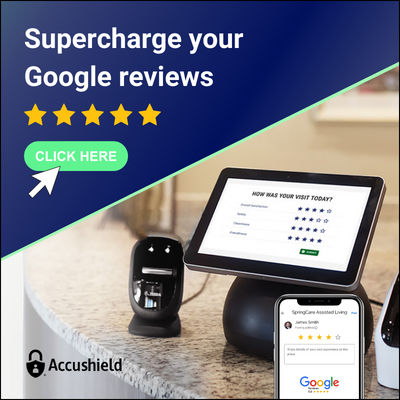If paid Mystery Shoppers won’t tolerate voice-mail and other sales missteps why would your prospects?
By Will Nowell
If paid Mystery Shoppers won’t tolerate voice mail and other sales missteps, why would your prospects?
I took a troubling call from John and Kathy, one of our best Mystery Shopper couples. John said he and his wife did not want to Mystery Shop retirement communities any more.
John and Katy are ideal mystery shoppers because they are a slice right out of our industries target demographic. Both 75 years old, John’s last “real job” was VP of Sales for Ford Motor Company and Katy was a customer service consultant.
Now, happily retired, they have been mystery shopping for the last eight years. It has provided them an opportunity to stay sharp and tap into their life experience.
The Big Frustrations
“It is too hard to reach a sales person. We constantly get sent directly to voice mail and then rarely get called back.”
“We reach a receptionist who can not answer any questions and can not tell us exactly when the sales person will be available.”
“Even when we do talk to a sales person, we don’t feel the sales person cares about us; they don’t ask questions or listen to us.”
It was hard to argue with their frustration. Our Peak Performance data, based on more than 3,000 recorded call have shown . . .
- 7 out of 10 initial call attempts result in a message being taken by a receptionist and/or the call being forwarded directly to voicemail
- In 8 out of 10 initial calls in which the shopper connects with a sales person, the sales person asks less than 3 questions about the prospect and talks more than 80 percent of the time
These results are sobering. In John’s case, he shared that the experience of calling retirement communities has become discouraging when it is so difficult to reach a sales person and, when he does, it’s depressing when the sales person shows little interest in him as a person.
John and Katy still want to continue mystery shopping work, just not in the retirement industry.
How it Feels to the Prospect
This should be a wake up call. As senior living organizations manage the busy and demanding sales process, they need to step back and ask themselves how their sales process feels from a prospect’s perspective.
Research shows that when prospects reach out to a community they are educated and have already narrowed down their search. When they don’t reach a live sales person and/or get sent directly to voice mail, they do not complain, they simply pick up the phone and call the next community on the list until they get the information they are looking for.
The research bodes a bit worse for prospects who interact with a salesperson who does not know how to ask questions, talks too much or seems disinterested in them and their needs. When this happens, the prospect often feels frustrated and angry from the experience.
Prospects who feel this way will typically share their experience with 8 to 10 of their friends and family members. Today with ready access to the world of social media and consumer review sites like Caring.com, the reach of a negative experience can be even broader.
It’s Expensive
The cost of not addressing these issues is significant. Right now the cost of each new inquiry is $200 and so blowing a lead is like taking two $100 bills and setting them on fire. It is actually potentially worse than that though.
Based on a very modest monthly service fee of $3,000 and a 30 month average stay, the loss of a move-in could easily approach $100,000.
Getting Ahead of the Problem
It makes good business sense to get ahead of this problem. Here are just a few simple ideas to ensure your communities are providing the expected sales experience and capturing every lead.
- Provide enough sales training to every single person who might possibly answer the phone or encounter a prospect.
- Create a “sales tree” that the managers keep current and the receptionist can use to find a manager who is available to take an inquiry call.
- Train all staff, sales people and the managers about the importance of being available for and effectively handling initial sales inquiry calls. One suggested standard is that the phone should never ring more than three times without being answered and the prospect should never be transferred more than once before reaching a live manager or sales person.
- Train the sales people and managers to be comfortable gathering a set of required information from every caller. A basic, pre-printed note pad with suggested questions and a space to write the notes is a helpful tool and can serve as a reminder of what is expected.
- Train the sales people and managers how to tuned in, be present and listen to every conversation. Showing interest in another person and effectively listening will always make a positive first impression and set the stage for a successful ongoing relationship.
- Train the sales people and the managers to always ask the prospects to come in for a personal visit for a specific day and time and, if that is not possible, to get a commitment for a specific follow up conversation including date and time (this may require that all involved have access to the sales peoples calendar).
- Mystery Shop the community at different times of the day and week to create a system of accountability and provide feedback for continued training and reinforcement.
We would be glad to email you a more comprehensive set of standards you can use to evaluate your customer experience:
Will Nowell at Peak Performance MS at [email protected] or (602)-284-0124
Will Nowell is the President of Peak Performance MS. Will has been providing sales consulting and training in the retirement industry for more than 20 years. Will is the author of the best selling book, ValueMatch Selling.








